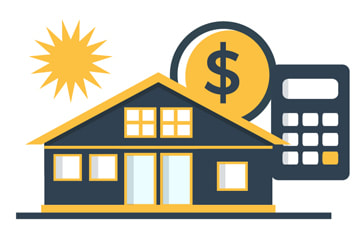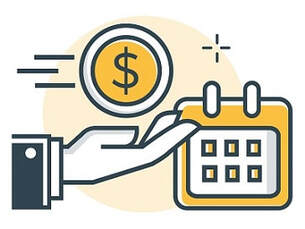FIRE and NZ Real Estate
Real estate is one of the main ways Kiwis build wealth in New Zealand. However, many investors wonder whether investing in real estate is aligned with the FIRE mentality. This guide explains everything you need to know.
Updated 26 February 2022
Summary
Know This First: The FIRE Movement and Real Estate - How Does it Work?
Pursuing your FIRE goals through real estate
Summary
- In general, investing in property takes a significant amount of time to get everything aligned. Still, for those who wish to invest, it can provide a steady source of retirement income (or an excellent way to build wealth towards retirement through capital gains).
- This guide analyses how real estate can fit into a FIRE follower's portfolio or overall strategy.
- We explain the good things about real estate as an investment choice as well as how real estate works post-retirement. Our guide also outlines frequently asked questions about real estate in an NZ FIRE context.
Know This First: The FIRE Movement and Real Estate - How Does it Work?
- The FIRE movement aims to reach financial independence earlier rather than later. As a result, FIRE enthusiasts tend to save a higher amount than most (anywhere from 10% to 85%+ of the cash that they earn). Meanwhile, FIRE followers practice frugal living and avoid unnecessary expenses.
- Real estate has become a popular alternative investment choice for FIRE followers recently. Property markets have been doing well in the last decade, and some wonder whether getting into debt and buying a $1 million "investment" is FIRE-friendly.
- The primary rationale behind real estate is that it involves purchasing investment properties to gather rent and boost your income in retirement (effectively a proxy or alternative to bonds, term deposits and shares).
- In addition, some FIRE followers argue that investing in real estate is a better hedge against inflation and potential volatility in the markets – but this may not always be the case.
- Additionally, real estate is an entirely different asset class and comes with unique risks. Becoming a successful investor in real estate requires proper planning and research – and given most FIRE followers start with mortgages when investing in real estate – the risks can be amplified.
Pursuing your FIRE goals through real estate
- The goal of FIRE is to reach financial independence through smarter spending, saving and investing extra money than is usually recommended. One popular way to achieve FIRE is through real estate. In many cases, it means buying a rental property and collecting rent from tenants to boost income.
- It's important to note that being a successful real estate investor — with the goal of getting FIRE'd — requires education and planning. Everyone who practices FIRE does so in different ways. Some have children while others don't, and a few have high-paying jobs while others make a middle-income.
- Similarly, some people choose to invest in shares, others with term deposits. A popular alternative to these is property, which this guide outlines.
Warning: Real Estate offers a faster way for a passive investor to get FIRE'd, but there are risks and pitfalls
- When you invest in real estate, you can possibly get FIRE'd much faster than investing in other asset classes due to leverage. However, there are some hurdles to invest in real estate - firstly, you'll get to have some money upfront for the deposit and need a strong enough credit history for a bank to lend you money. If you can achieve that, you'll effectively use other people's hard-earned savings to finance your purchase of a property.
- Building a portfolio of real estate properties can be a passive investing strategy to fast-track wealth creation. Many news sites like the NZHerald (and their offshoot oneroof.co.nz) like to report on people who consistently buy properties.
- Such investors follow a similar formula - they take out equity from that property (after it has gone up in price) as a deposit for another house, then continue this cycle to buy 10+ properties. While this may seem like a hack to create wealth, it is extremely risky and requires a consistently rising property market, low rates and tenants that pay on time. This is not a consistent strategy and should not be undertaken without a proper understanding of the risks.
- With traditional mortgages, you'll need to calculate the income you earn against the payments you need to make each month. It is much easier to take out a larger mortgage in a lower interest rate environment as the interest payments will be disproportionately lower than if it were a high-interest rate environment.
More information: Visit New Zealand's Financial Freedom Authority - The Happy Saver. Ruth is a proven expert and has helped hundreds of New Zealanders on their journey to financial independence. Ruth also offers a phone-a-friend service which we believe is a helpful starting point to mapping out the financial situation you want to achieve. MoneyHub has no financial relationship with The Happy Saver, and mention it given its popularity, relevance, usefulness and trust.
Buying an Investment Property - Finance and Mortgage Options
There are several ways to get a mortgage in New Zealand for an investment property. Both come with risks:
Know This:
- The first option is to apply for a stand-alone mortgage. The process can take a few days to many months, depending on how complex your income, expenses, and property type is. However, it is important to note that many banks like to approve mortgages for first home buyers rather than for the purchase of an investment. In addition, most banks will require a loan to value ratio (LVR) of 60%+ for investment properties.
- Cash-out refinance loans are an alternative choice. This is where you take out a mortgage on another property (typically your family home) to use as a deposit for the house. However, tapping into your home equity to buy an investment property is somewhat risky because your home is put up as collateral (if you default on the mortgage, the bank can repossess your house to cover the outstanding amount).
Know This:
- Under the FIRE movement, taking out mortgages on high-interest rates is viewed as a risk. If you've got high costs monthly, it'll make it harder to satisfy your savings goals. However, this hasn't necessarily been a problem in the last decade in New Zealand, given steadily declining interest rates.
- Building wealth through real estate can work well in a FIRE plan. If you are doing your research and planning carefully, investing in real estate can assist you in achieving financial independence much faster.
- Be sure to avoid the top mistakes people make and choose your investments carefully to enjoy the best possible returns and a steady source of income.
Real Estate vs Investing in Shares and Bonds
Investing in both property and shares/bonds can be a great way to build wealth. Both are tried and true ways of getting to financial independence. A common way to benchmark this is through the 4% rule. The 4% rule suggests that a retiree can withdraw 4% of their initial nest egg, increase withdrawals as inflation increases and have a low likelihood of running out of cash. However, the future is uncertain, and recently, there have been questions as to whether this is likely to continue in a lower interest rate world.
A successful real estate investor can potentially expect to get a better yield than 4%. For example, it's reasonable to get a 3 - 8% return for a paid-off property (no mortgage) in New Zealand (this may vary depending on which city in New Zealand you buy in). For example, if you purchased a house in Auckland for $1 million and were able to charge $50,000 in rent yearly, that would be a 5% yield on your investment (excluding capital gains). This could be used as a proxy for your retirement income. That same $1 million invested in shares and bonds may return less than this, assuming you follow the 4% rule which may no longer be relevant – see our guide here).
The real estate investor also has the advantage of retaining ownership of the asset, whereas the shares and bond investor may need to sell assets during a down market. However, real estate can require significantly more time to prepare and invest in. Real estate requires looking at various properties, getting a feel for the market, talking to real estate agents, lawyers and surveyors, attending auctions and going through paperwork with the bank. Sometimes this initial time sink can be too much for FIRE followers who want an easy path to retirement and may opt for shares instead.
A successful real estate investor can potentially expect to get a better yield than 4%. For example, it's reasonable to get a 3 - 8% return for a paid-off property (no mortgage) in New Zealand (this may vary depending on which city in New Zealand you buy in). For example, if you purchased a house in Auckland for $1 million and were able to charge $50,000 in rent yearly, that would be a 5% yield on your investment (excluding capital gains). This could be used as a proxy for your retirement income. That same $1 million invested in shares and bonds may return less than this, assuming you follow the 4% rule which may no longer be relevant – see our guide here).
The real estate investor also has the advantage of retaining ownership of the asset, whereas the shares and bond investor may need to sell assets during a down market. However, real estate can require significantly more time to prepare and invest in. Real estate requires looking at various properties, getting a feel for the market, talking to real estate agents, lawyers and surveyors, attending auctions and going through paperwork with the bank. Sometimes this initial time sink can be too much for FIRE followers who want an easy path to retirement and may opt for shares instead.
Understanding the Tax Differences in Asset Class - Shares, Bonds and Property
There are a few tax implications when investing in real estate versus other asset classes (bonds, shares etc.). In general, tax-advantaged investments should be maxed out. However, some investment accounts can be set up as companies and may be more efficient than others. For example, if you set up a personal investment company, the top corporate tax rate you would have to pay is 28%, which is in stark contrast to the top personal tax rate, currently at 39%. While small differences in tax rate may seem immaterial, these differences can compound into massive sums over a long period.
We outline the different tax on asset classes below:
1. Shares
The unique tax benefit for New Zealand estate is that capital gains are not taxed. For example – any gains for investing in New Zealand estate businesses on the NZX (assuming you are not a day trader/buying for the intent of profiting from short term price fluctuations) are tax-free. This is not the case in most developed countries – capital gains can range from 10 – 40% in countries like Australia, the USA, and the UK. This is effectively to incentivise New Zealanders to invest in local companies rather than other types of assets. However, the dividends issued to shareholders of companies are taxed. You can read more about investing in shares here.
2. Bonds
The coupon/interest payments from bonds will be taxed as income. For example - this means that a $100 bond paying a 5% yearly dividend ($5) will be subject to tax (which could be up to 39% - or around $2 in tax). This is one of the core downsides to investing in bonds. That said – a core reason people buy bonds is for the stability and consistent payment. Many FIRE followers use bonds as a proxy (4% rule, etc.) to reasonably rely on bonds to pay out a certain rate when they purchase them.
The argument for shares vs bonds is simple – the money a company (and therefore a share) makes is not taxed until it is paid out as a dividend. Meaning if a company generates profit and can reinvest this into the company (similar to what companies like Amazon do) – they can compound those small differences for much longer. In effect – shares get to compound their money faster than bonds. You can read more about investing in bonds here.
3. Real Estate
In earlier years, real estate was an extremely tax-efficient investment class. Rental losses could offset personal income tax - losses on the property (basically where a mortgage payment is greater than the rent coming in) could be used to offset personal income tax. For example, if you earned $100,000 in your job and owed $30,000 in taxes, and if your property generated a rent of $40,000 but your mortgage payments were $70,000, you could use the $30,000 losses to offset your personal income tax and pay no tax in that year).
This led to people putting down as small a deposit as possible to rack up large mortgage losses and effectively pay no tax for years. However, this was changed / ring-fenced in the late 2010s – and can now only be used to offset taxes on the real estate class only (can no longer be applied to personal income). This has substantially reduced the tax efficiency of real estate as an investment class. Find more information about this here.
Know This: Interest Deductibility of residential property income
Understand the "Brightline Test"
Our View:
Taken as a whole – real estate has become significantly less tax-advantageous to invest in compared to other asset classes. As a result, the glory days in the early 2000s for New Zealand real estate investing in property are over – and there are significant changes that will impact many FIRE follower's intentions to invest in real estate.
We outline the different tax on asset classes below:
1. Shares
The unique tax benefit for New Zealand estate is that capital gains are not taxed. For example – any gains for investing in New Zealand estate businesses on the NZX (assuming you are not a day trader/buying for the intent of profiting from short term price fluctuations) are tax-free. This is not the case in most developed countries – capital gains can range from 10 – 40% in countries like Australia, the USA, and the UK. This is effectively to incentivise New Zealanders to invest in local companies rather than other types of assets. However, the dividends issued to shareholders of companies are taxed. You can read more about investing in shares here.
2. Bonds
The coupon/interest payments from bonds will be taxed as income. For example - this means that a $100 bond paying a 5% yearly dividend ($5) will be subject to tax (which could be up to 39% - or around $2 in tax). This is one of the core downsides to investing in bonds. That said – a core reason people buy bonds is for the stability and consistent payment. Many FIRE followers use bonds as a proxy (4% rule, etc.) to reasonably rely on bonds to pay out a certain rate when they purchase them.
The argument for shares vs bonds is simple – the money a company (and therefore a share) makes is not taxed until it is paid out as a dividend. Meaning if a company generates profit and can reinvest this into the company (similar to what companies like Amazon do) – they can compound those small differences for much longer. In effect – shares get to compound their money faster than bonds. You can read more about investing in bonds here.
3. Real Estate
In earlier years, real estate was an extremely tax-efficient investment class. Rental losses could offset personal income tax - losses on the property (basically where a mortgage payment is greater than the rent coming in) could be used to offset personal income tax. For example, if you earned $100,000 in your job and owed $30,000 in taxes, and if your property generated a rent of $40,000 but your mortgage payments were $70,000, you could use the $30,000 losses to offset your personal income tax and pay no tax in that year).
This led to people putting down as small a deposit as possible to rack up large mortgage losses and effectively pay no tax for years. However, this was changed / ring-fenced in the late 2010s – and can now only be used to offset taxes on the real estate class only (can no longer be applied to personal income). This has substantially reduced the tax efficiency of real estate as an investment class. Find more information about this here.
Know This: Interest Deductibility of residential property income
- In late 2020, regulation was introduced to effectively reduce the efficiency and deductibility of mortgage interest.
- This effectively means you need to pay tax on all income from a non-family investment property, regardless of the mortgage payments you make on it.
- So, for example, if you had $40,000 a rent coming in but had $70,000 of mortgage payments, you would need to treat the $40,000 as income and likely pay tax on it at your marginal income rate – which could be as high as 39%). This has significant impacts for those considering investing in property – and substantially reduces the benefit of taking on a mortgage.
- This change will take a few years to come through fully – but the intention is to make mortgages entirely non-deductible. The IRD outlines more information about this here.
Understand the "Brightline Test"
- In 2015, the brightline test was introduced (a quasi-capital gains tax on short term investments into real estate).
- For non-family homes, properties brought and sold within five years were subject to capital gains tax. This was extended to 10 years as of 2021. This effectively means that selling within a decade of buying an investment property will incur capital gains taxes. As a whole, this has a significant impact on the hold period for investors.
Our View:
Taken as a whole – real estate has become significantly less tax-advantageous to invest in compared to other asset classes. As a result, the glory days in the early 2000s for New Zealand real estate investing in property are over – and there are significant changes that will impact many FIRE follower's intentions to invest in real estate.
The Pros and Cons of Investing in Real Estate
When investing in real estate to get FIRE'd, it is important to understand how leverage impacts properties and how it can enhance your cash-on-cash returns. There are many things to weigh up for New Zealand FIRE followers considering investing in real estate:
The Pros of Investing in Real Estate
1. Quick path to FIRE: You have the potential to get FIRE'd faster by investing in real estate than if you invest in shares or bonds alone. You'll need an initial deposit to invest in property and take out a mortgage to finance the remainder of the property. Be sure to calculate whether your monthly income will be enough to cover the monthly mortgage payments.
2. Reduced volatility compared to shares: In general, real estate exposes you to less risk than shares, predominantly because it's not valued every day (you only know what your property is worth after a CV check etc.). Once people retire and draw down on their nest eggs, they may face the danger of a market crash. Since you weren't contributing to your retirement savings anymore, your portfolio could diminish much faster due to your withdrawals. As long as your properties are occupied, they will continue generating income long after you retire.
3. Adjusted returns: When you invest in an index fund, you want to adjust for inflation when predicting your returns. In contrast, rental prices typically rise alongside inflation as the cost of living goes up. This is because landlords typically raise rents yearly after signing the leasing agreement.
2. Reduced volatility compared to shares: In general, real estate exposes you to less risk than shares, predominantly because it's not valued every day (you only know what your property is worth after a CV check etc.). Once people retire and draw down on their nest eggs, they may face the danger of a market crash. Since you weren't contributing to your retirement savings anymore, your portfolio could diminish much faster due to your withdrawals. As long as your properties are occupied, they will continue generating income long after you retire.
3. Adjusted returns: When you invest in an index fund, you want to adjust for inflation when predicting your returns. In contrast, rental prices typically rise alongside inflation as the cost of living goes up. This is because landlords typically raise rents yearly after signing the leasing agreement.
The Cons of Investing in Real Estate
1. Capital outlay and ongoing costs: Buying rental properties requires a considerable amount upfront for the deposit. In addition, you have to consider the prices of repairs, maintenance, insurance, and a property manager. Choosing where you buy properties is also important to avoid high vacancy rates. Diversification can help to avoid a number of the issues which will occur with investments in real estate. However, building a portfolio of properties typically requires a large amount of money. Hiring a property manager can assist you to stay as a passive investor rather than working a full-time job as a real landlord. An honest property manager can collect rents, handle repairs and maintenance, and help with evictions when necessary.
2. Big upfront costs: Even if you borrow 60%+ of the property purchase, investing in real estate still comes with a high upfront cost. This is because buying property means spending thousands of dollars on closing fees, insurance, maintenance and repairs. For most New Zealanders, saving this money can often take years and take a long time to receive back in rental income.
3. Vacancies cost money: It's also important to think about rental property vacancy. There will inevitably be points where a tenant will leave, and your house will be vacant (and not generate income). Property markets can fluctuate, and rentals remain empty for months, sometimes even years, if you aren't careful about what type and where you purchase. It's also crucial to understand what it will cost to hire a property manager to take care of the day-to-day needs and handle things like broken appliances or damages done by renters.
4. Property market crashes are a risk: If the real estate market crashes, it might be a big hit to your finances, as you'll need to keep paying the mortgage on the house while it loses value or risk selling it at a loss. Real estate markets fluctuate constantly, and it poses an enormous risk if you aren't careful. It's also important to think about diversification. If you invest a big portion of your savings in real estate, that investment is tied to too few physical assets or one physical asset. Physical assets are vulnerable to depreciation through forces aside from the market.
5. More work: Investing in real estate requires you to do the majority of the work managing properties. If you're investing in properties and collecting rent, being a real landlord is a whole profession and can take up a significant portion of your time. Real landlords must ensure their properties are safe, clean and livable. You will be liable for taxes and levies on the property. If tenants don't pay rent, you'll need to let them know they're overdue. In a worst-case scenario, you'll need to evict tenants who don't pay – which takes up valuable time, money and energy that you may not have the mental capacity for.
6. Little or no liquidity: When you invest within the market, you can sell shares when you need the cash. This isn't possible with real estate, as selling one property can take months, or maybe years, in some cases. Real estate may be a good long-term investment, but it's not the simplest choice if you think that you're getting to need that cashback within the near future.
2. Big upfront costs: Even if you borrow 60%+ of the property purchase, investing in real estate still comes with a high upfront cost. This is because buying property means spending thousands of dollars on closing fees, insurance, maintenance and repairs. For most New Zealanders, saving this money can often take years and take a long time to receive back in rental income.
3. Vacancies cost money: It's also important to think about rental property vacancy. There will inevitably be points where a tenant will leave, and your house will be vacant (and not generate income). Property markets can fluctuate, and rentals remain empty for months, sometimes even years, if you aren't careful about what type and where you purchase. It's also crucial to understand what it will cost to hire a property manager to take care of the day-to-day needs and handle things like broken appliances or damages done by renters.
4. Property market crashes are a risk: If the real estate market crashes, it might be a big hit to your finances, as you'll need to keep paying the mortgage on the house while it loses value or risk selling it at a loss. Real estate markets fluctuate constantly, and it poses an enormous risk if you aren't careful. It's also important to think about diversification. If you invest a big portion of your savings in real estate, that investment is tied to too few physical assets or one physical asset. Physical assets are vulnerable to depreciation through forces aside from the market.
5. More work: Investing in real estate requires you to do the majority of the work managing properties. If you're investing in properties and collecting rent, being a real landlord is a whole profession and can take up a significant portion of your time. Real landlords must ensure their properties are safe, clean and livable. You will be liable for taxes and levies on the property. If tenants don't pay rent, you'll need to let them know they're overdue. In a worst-case scenario, you'll need to evict tenants who don't pay – which takes up valuable time, money and energy that you may not have the mental capacity for.
6. Little or no liquidity: When you invest within the market, you can sell shares when you need the cash. This isn't possible with real estate, as selling one property can take months, or maybe years, in some cases. Real estate may be a good long-term investment, but it's not the simplest choice if you think that you're getting to need that cashback within the near future.
How to Invest in Real Estate
There are different pathways to get exposure to real estate, but getting the process right upfront is essential. We outline proven steps to invest with full consideration:
1. Invest directly
If you're confident you'll act as an honest landlord and keep tenants, this is often the safest and most predictable route to earn income through real estate. You'll know exactly what proportion you'll make monthly, and you'll factor that into your FIRE plan.
2. Choose a high-quality property in a proven (or upcoming) area
Choosing which property to take a position in is one of the most important things to consider for real estate investors. To avoid common mistakes, you should only invest in a neighbourhood that's growing. While it's going to be tempting to shop for cheap properties on a budget in places that are struggling, it can be difficult to rent out these properties. On the other hand, fast-growing areas will have more demand for housing, which suggests you'll be ready to charge higher rental prices.
It can help to research locations you either already know or have researched thoroughly before. Work to know an area's vacancy rates and transport connections before putting any money down. Our checklist for buying a home has more details.
3. Choosing a property within budget
Unless you've got an electrician or plumbing license, it's a good idea to avoid the worst "fixer-upper" properties. If something like the cladding of the property is compromised, you'll lose thousands of dollars on repairs. Finally, you should calculate your returns, including your cash-on-cash return rate, before putting any money down. It is essential to work through the unit economics of a real estate investment and how it fits together with your budget and your FIRE objectives.
4. Prepare your finances
Most people need to get their finances so as if they shall buy a house to measure in. Investing in real estate is not any different.
5. Have an honest credit profile
You'll need a robust credit profile if you plan to get a mortgage or rental property loan with a low rate of interest, and you'll need a lower rate of interest if you plan to profit off your property investment. To benefit the most from your real estate investments, you'll want to take advantage of the current rock bottom interest rates. To get the best rate possible – your credit history comes into play. This can be challenging if you're young and haven't built up that much credit (the length of credit history influences your credit profile). Our guide to credit scores has more details.
6. Assemble your documents
You'll also need certain documents to accumulate a mortgage:
7. Have the right amount of savings
Confirm you've got an adequate amount stashed away to cover any unexpected expenses and closing costs on your properties, as anything can happen. You will also need to have sufficient savings to make up your initial deposit. Make sure to include enough money for closing costs, fees to brokers or lawyers and unexpected expenses.
8. Finance your investment
There are a few ways to accumulate the financing you would like to take a position in property.
a. Investor capital
One of the top ways to finance a property purchase is to use other people's money. While this isn't always an option, succeeding with it often comes down to having the proper people in your network; it can be a significantly faster way to get onto the property ladder.
b. Traditional loan options
With investment properties, the big four banks will typically require a 30%+ deposit or larger. Banks typically like better to provide mortgages to people that shall sleep in the homes they buy, to not investors. You'll also need to have a robust personal financial history to secure a mortgage.
c. Family and friends
Pooling funds together with family and friends can be another alternative to accessing financing for property investing. In addition, promissory notes or other peer-to-peer financing options are alternatives to taking out a mortgage from a bank.
1. Invest directly
If you're confident you'll act as an honest landlord and keep tenants, this is often the safest and most predictable route to earn income through real estate. You'll know exactly what proportion you'll make monthly, and you'll factor that into your FIRE plan.
2. Choose a high-quality property in a proven (or upcoming) area
Choosing which property to take a position in is one of the most important things to consider for real estate investors. To avoid common mistakes, you should only invest in a neighbourhood that's growing. While it's going to be tempting to shop for cheap properties on a budget in places that are struggling, it can be difficult to rent out these properties. On the other hand, fast-growing areas will have more demand for housing, which suggests you'll be ready to charge higher rental prices.
It can help to research locations you either already know or have researched thoroughly before. Work to know an area's vacancy rates and transport connections before putting any money down. Our checklist for buying a home has more details.
3. Choosing a property within budget
Unless you've got an electrician or plumbing license, it's a good idea to avoid the worst "fixer-upper" properties. If something like the cladding of the property is compromised, you'll lose thousands of dollars on repairs. Finally, you should calculate your returns, including your cash-on-cash return rate, before putting any money down. It is essential to work through the unit economics of a real estate investment and how it fits together with your budget and your FIRE objectives.
4. Prepare your finances
Most people need to get their finances so as if they shall buy a house to measure in. Investing in real estate is not any different.
5. Have an honest credit profile
You'll need a robust credit profile if you plan to get a mortgage or rental property loan with a low rate of interest, and you'll need a lower rate of interest if you plan to profit off your property investment. To benefit the most from your real estate investments, you'll want to take advantage of the current rock bottom interest rates. To get the best rate possible – your credit history comes into play. This can be challenging if you're young and haven't built up that much credit (the length of credit history influences your credit profile). Our guide to credit scores has more details.
6. Assemble your documents
You'll also need certain documents to accumulate a mortgage:
- Recent pay statements
- Tax returns
- Bank statements
- Investment account statements
- Purchase agreement
- Proof of funds for the acquisition
- Existing mortgage statements
7. Have the right amount of savings
Confirm you've got an adequate amount stashed away to cover any unexpected expenses and closing costs on your properties, as anything can happen. You will also need to have sufficient savings to make up your initial deposit. Make sure to include enough money for closing costs, fees to brokers or lawyers and unexpected expenses.
8. Finance your investment
There are a few ways to accumulate the financing you would like to take a position in property.
a. Investor capital
One of the top ways to finance a property purchase is to use other people's money. While this isn't always an option, succeeding with it often comes down to having the proper people in your network; it can be a significantly faster way to get onto the property ladder.
b. Traditional loan options
With investment properties, the big four banks will typically require a 30%+ deposit or larger. Banks typically like better to provide mortgages to people that shall sleep in the homes they buy, to not investors. You'll also need to have a robust personal financial history to secure a mortgage.
c. Family and friends
Pooling funds together with family and friends can be another alternative to accessing financing for property investing. In addition, promissory notes or other peer-to-peer financing options are alternatives to taking out a mortgage from a bank.
Common Real Estate Investing Mistakes
Investing in real estate is one path to wealth, but it does involve significant risk. It's important to avoid a number of the common traps New Zealand real estate investors fall under. These include:
1. Not understanding the landscape
You may be extremely knowledgeable about personal finances or investing, but managing real estate is a completely different game. Learn the most you can before deciding to invest in real estate, especially if you intend for real estate to be a core part of your FIRE strategy.
2. Not planning in advance
A "plan as you go" strategy never works in real estate investing. There are just too many variables to think about with a physical asset, and if you don't calculate your core expenses right, you'll end up with real estate assets that cost you more money than it's making. It's important to look for a property that matches your plan rather than being too hasty and buying a property that isn't the right fit. You should also plan contingencies if something goes wrong (e.g. tenant leaves, property damage, unexpected interest rate changes).
3. Paying too much for a property
The price you pay for real estate determines the potential upside you get. Places like auctions or extremely popular properties can cause people to overpay. Looking for properties that suit your plan is a must, but make sure you're not paying too much. Cheaper properties that present strong yield or an opportunity to renovate can be great options.
4. Underestimating maintenance and repair costs
Investing in a physical asset like property always involves costs for maintenance and maintenance, especially if you're investing during a rental property. If you fail to repair the general wear and tear issues when tenants live in your property, they can become an expensive problem over time.
1. Not understanding the landscape
You may be extremely knowledgeable about personal finances or investing, but managing real estate is a completely different game. Learn the most you can before deciding to invest in real estate, especially if you intend for real estate to be a core part of your FIRE strategy.
2. Not planning in advance
A "plan as you go" strategy never works in real estate investing. There are just too many variables to think about with a physical asset, and if you don't calculate your core expenses right, you'll end up with real estate assets that cost you more money than it's making. It's important to look for a property that matches your plan rather than being too hasty and buying a property that isn't the right fit. You should also plan contingencies if something goes wrong (e.g. tenant leaves, property damage, unexpected interest rate changes).
3. Paying too much for a property
The price you pay for real estate determines the potential upside you get. Places like auctions or extremely popular properties can cause people to overpay. Looking for properties that suit your plan is a must, but make sure you're not paying too much. Cheaper properties that present strong yield or an opportunity to renovate can be great options.
4. Underestimating maintenance and repair costs
Investing in a physical asset like property always involves costs for maintenance and maintenance, especially if you're investing during a rental property. If you fail to repair the general wear and tear issues when tenants live in your property, they can become an expensive problem over time.
Tips from FIRE Followers that Invest in Real Estate
It is often tricky to work out how to make the FIRE movement work for your specific needs, especially when it involves real estate investing, as every market is different and requires a singular approach from investors. For young investors that follow the FIRE movement, taking a higher risk higher reward position when investing can be beneficial. In most cases, you'll get a better return on your cash by spreading it out among several properties than by owning one piece of real estate alone. The income per property is going to be less, but the income from four properties with a mortgage will be much more from one property without one. As you build equity in your properties, you can leverage the equity to invest in other properties.
Get educated in the value of real estate, the nature of the transactions and other unique elements are important. Given the cost of housing generally, your mistakes will hurt a lot more if you don't understand what you're investing in (unlike shares – which typically don't deal in the hundreds of thousands). When pursuing FIRE using real estate, the investor must have a firm understanding of what they're trying to realise. It's easy to mention we would like to make more money, but you want to understand how and understand the different situations that may affect the investments.
Tips from experienced real estate investors include:
1. Specialise in learning the way to find good deals.
There will be hundreds of different properties for sale on websites like Realestate.co.nz, Trade Me and Homes.co.nz. One of the top things to do is understand the different areas and what they typically sell for.
2. Find out how to accurately forecast rental income.
Early retirement requires income, so generally, FIRE-oriented real estate investing means rental investing. Get very conversant in forecasting expenses, especially, and get comfortable running the numbers during a rental income calculator. The last place you would like to seek out yourself is buying a property that costs you money annually instead of earning you money.
3. Find out how to screen tenants thoroughly.
It sounds simple, and it is, yet many new landlords gloss over this step. As a result, the standard of your returns directly correlates with the standard of your tenants, and bad tenants can cost you dearly.
Get educated in the value of real estate, the nature of the transactions and other unique elements are important. Given the cost of housing generally, your mistakes will hurt a lot more if you don't understand what you're investing in (unlike shares – which typically don't deal in the hundreds of thousands). When pursuing FIRE using real estate, the investor must have a firm understanding of what they're trying to realise. It's easy to mention we would like to make more money, but you want to understand how and understand the different situations that may affect the investments.
Tips from experienced real estate investors include:
1. Specialise in learning the way to find good deals.
There will be hundreds of different properties for sale on websites like Realestate.co.nz, Trade Me and Homes.co.nz. One of the top things to do is understand the different areas and what they typically sell for.
2. Find out how to accurately forecast rental income.
Early retirement requires income, so generally, FIRE-oriented real estate investing means rental investing. Get very conversant in forecasting expenses, especially, and get comfortable running the numbers during a rental income calculator. The last place you would like to seek out yourself is buying a property that costs you money annually instead of earning you money.
3. Find out how to screen tenants thoroughly.
It sounds simple, and it is, yet many new landlords gloss over this step. As a result, the standard of your returns directly correlates with the standard of your tenants, and bad tenants can cost you dearly.
Fire and New Zealand Real Estate - Our Conclusion
FIRE is achievable even on a lower income if you create the proper financial moves, consistent with FIRE enthusiasts. If you plan to buy real estate to get FIRE'd, you'll need to avoid all of the common pitfalls and choose investments that will provide you with the simplest opportunity for steady income.
What ways are there to invest in real estate without having to manage it?
REITs are an alternative choice for wealth building.
Be careful of leverage.
Beware of changing yields
Watch for changing interest rates
Build a buffer into your income(s)
What ways are there to invest in real estate without having to manage it?
- There are other ways to get passive income from real estate beyond becoming a landlord.
- You've first got to decide which sort of investment is that the right one for you. Some of these can include flipping houses and investing in REITs.
- Flipping houses is an alternative choice for investors; people who flip houses typically buy properties when their prices are low and sell them quickly (within a few months) to realise gains.
- House flipping can require you to undertake repairs and enhancements, so you'll either need to do these repairs yourself or get a contractor to do the work.
REITs are an alternative choice for wealth building.
- These are tradeable holdings that are offered by companies that own real estate. Investments in REITs typically offer high dividends but carry the same risks as real estate. REITs are publicly traded and have similar characteristics to share investments.
- A key benefit of a REIT is that it is likely diversified, as the assets will be split among many different real estate properties.
Be careful of leverage.
- Unlike shares and bonds, real estate will primarily employ leverage (through taking out a mortgage with the bank). However, while leverage can enhance returns, it can also increase the potential losses in the case of a downturn (which hasn't happened to a large extent in the last 50 years in New Zealand real estate – but has happened in other places like the USA in 2008).
Beware of changing yields
- In an ideal world, the price of properties would stay fixed, tenants' rent is consistent, and tenants stay forever. However, in reality, all three of these things change. The value of your property fluctuates over time, people leave and move every few years, and there will be gaps in your rental income when the property is vacant.
- In addition, demand for properties in your area, how much people are paying and interest rates will fluctuate and impact the overall yield you get on your property.
Watch for changing interest rates
- When interest rates are low, it is much easier to get bank financing and manage monthly payments on the mortgage. However, we are likely entering a rising interest rate environment.
- Many highly leveraged New Zealanders may experience difficulties meeting mortgage payments if interest rates rise (especially if they start with one year fixed mortgages and need to get new mortgages on higher rates).
- Work out if you can afford to cover mortgages in rising interest rate conditions.
Build a buffer into your income(s)
- Job losses happen. Tenants can leave. You may have unexpected expenses crop up that can put pressure on your finances.
- Know this before purchasing real estate and build sufficient buffer into your financial projections to ensure you can handle any unexpected changes to your financial situation.
Investment Property Related Guides:
Financial Independence Guides:
- Rental Property Mortgages
- Renting Directly to Tenants vs Using an Agent
- Compare Landlord Insurance
- First Home Buyer Guide
- Home Buying Glossary
Financial Independence Guides:








